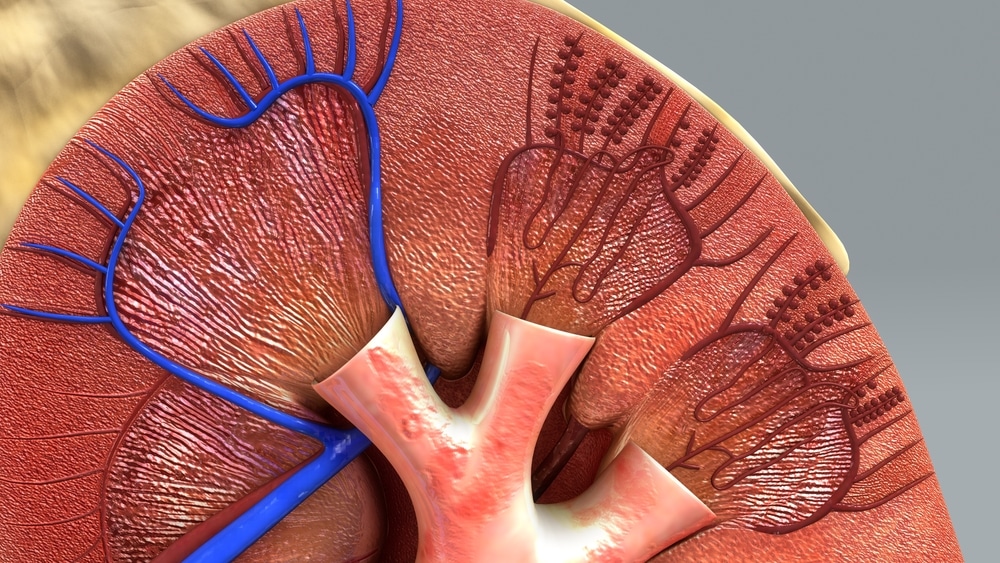Every March, in collaboration with other kidney-related organizations across the United States, the Alport Syndrome Foundation (ASF) invites people to celebrate Alport Awareness Month. This annual, month-long event places a spotlight on Alport syndrome, a rare kidney disease that causes a decline in kidney function over time. According to current estimates, approximately 1 in every 5,000 to 10,000 people suffers from Alport syndrome. Through Alport Awareness Month, ASF hopes to increase awareness of Alport syndrome, boost early and accurate diagnosis, and highlight the need for research and funding.

What Is Alport Syndrome?
Alport syndrome is a genetic disease that damages the tiny blood vessels in the glomeruli of the kidneys, which are responsible for filtering blood to remove wastes and extra fluid. This can lead to kidney disease and kidney failure. Because Alport syndrome is caused by molecular abnormalities in collagen IV, and collagen helps the body maintain healthy tissue in the eyes and ears, the disease can also cause vision issues and hearing loss. Symptoms of Alport syndrome include hematuria (blood in the urine), proteinuria (protein in the urine), hypertension, swelling in the legs and feet, and swelling around the eyes.
To diagnose Alport syndrome, healthcare professionals may use some or all of the following tests: a urine test, blood test, glomerular filtration rate (GFR), kidney biopsy, hearing test, vision test, and genetic test. Currently there is no specific treatment for Alport syndrome, but according to the National Kidney Foundation, doctors may prescribe medications (including ACE inhibitors, ARB medicines, and diuretics) and/or a low-sodium diet to slow the progression of kidney disease.
Researchers continue to study Alport syndrome to better understand the disease, identify more effective treatment options, and potentially develop a cure. Numerous clinical trials are currently underway.
Celebrating Alport Awareness Month 2021
During this year’s Alport Awareness Month, ASF presented their 2021 funding award of $132,000 to Washington University’s Division of Nephrology in the Department of Medicine. The funding will support Dr. Jeffrey Miner’s laboratory as it performs proof-of-concept gene therapy studies in Alport mice that carry trans genes allowing induction of collagen 345(IV) expression at any age. Through this research, Dr. Miner and his team aim to determine both the ages and stages of kidney disease at which promising gene therapy treatments such as CRISPR would be effective in patients with Alport syndrome.
This year’s Alport Awareness Month also included a variety of events, activities, and announcements, including the following:
- ASF shared insights from their “Diagnosis Stories Survey,” which involved 240 patients with a confirmed Alport syndrome diagnosis. For example, the survey found that 51 percent of adult patients “were initially misdiagnosed or incompletely diagnosed.”
- ASF hosted a 60-minute informational webinar, which included a live Q&A session with patients, to discuss the Alport syndrome patient cohort of Chinook Therapeutics’s AFFINITY study. Chinook Therapeutics is researching Atrasentan, an investigational endothelin receptor antagonist for the treatment of IgA nephropathy and other primary glomerular diseases, including Alport syndrome.
- In coordination with the International Pediatric Nephrology Association, ASF held a 60-minute webinar and Q&A session entitled “Alport Syndrome: Patient – Physician Perspectives.” Three young people with Alport syndrome, representing the United States, England, and China, shared their experiences growing up with Alport syndrome.
_____
This year’s Alport Awareness Month has ended, but if you would like to begin planning for next year’s event, contact ASF for support. The foundation can provide ideas and resources to further your efforts.
Scantox is a part of Scantox, a GLP/GCP-compliant contract research organization (CRO) delivering the highest grade of Discovery, Regulatory Toxicology and CMC/Analytical services since 1977. Scantox focuses on preclinical studies related to central nervous system (CNS) diseases, rare diseases, and mental disorders. With highly predictive disease models available on site and unparalleled preclinical experience, Scantox can handle most CNS drug development needs for biopharmaceutical companies of all sizes. For more information about Scantox, visit www.scantox.com.








